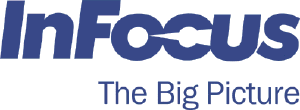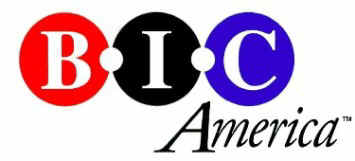 The Goethe-Institut San Francisco's annual festival of films from Germany, Austria and Switzerland, affectionately titled Berlin and Beyond continues its week long stay at the Castro Theatre until Wednesday, January 21, 2009.
The Goethe-Institut San Francisco's annual festival of films from Germany, Austria and Switzerland, affectionately titled Berlin and Beyond continues its week long stay at the Castro Theatre until Wednesday, January 21, 2009.  COME IN AND BURN OUT (SELBSTGESPRÄCHE) (dir. André Erkau, Germany, 2008, 96 mins.) This is an enjoyable little comedy, that actually feels like a sit-com. In fact, even at the relatively short running time of an hour and a half, it still felt a bit long. The situation is set in a telecommunications sales call center (think, "Hello, this is Comcast calling!") and goes outside of the cubicle farm with the employees. The plot structure really lends itself to exploring each situation in a 60 minute block to be more effective and not as trivialized as the whole felt here. The performances are all well defined, though in that near stereotypical manner that the format requires. The script does not rely on gags or punchlines, but on the relationships between the co-workers and to some degree, their significant others outside of their jobs. I think that had it not felt like a television series pilot, I would have been able to enjoy it more on its own merits. But as it is, I did feel like I was being sold something, not unlike one of the unseen customers on the other end of the call center's lines.
COME IN AND BURN OUT (SELBSTGESPRÄCHE) (dir. André Erkau, Germany, 2008, 96 mins.) This is an enjoyable little comedy, that actually feels like a sit-com. In fact, even at the relatively short running time of an hour and a half, it still felt a bit long. The situation is set in a telecommunications sales call center (think, "Hello, this is Comcast calling!") and goes outside of the cubicle farm with the employees. The plot structure really lends itself to exploring each situation in a 60 minute block to be more effective and not as trivialized as the whole felt here. The performances are all well defined, though in that near stereotypical manner that the format requires. The script does not rely on gags or punchlines, but on the relationships between the co-workers and to some degree, their significant others outside of their jobs. I think that had it not felt like a television series pilot, I would have been able to enjoy it more on its own merits. But as it is, I did feel like I was being sold something, not unlike one of the unseen customers on the other end of the call center's lines. HOLLYWOOD SPEAKS GERMAN (a special presentation by Stefan Droessler, Director of Film Museum Munich) Stefan Droessler, Director of the Film Museum Munich, gave a presentation about the awkward period for early sound film, 1929 - 1933, in which studios were so excited to capitalize on "the talkies" that they struggled with the technology to sell product in foreign languages. Since sound recording was done on Vitaphone during that period, the soundtrack had to be laid while filming. There were very unsuccessful attempts at intertitles and early dubbing (this was before magnetic tape was available), so the alternative quickly became apparent: reshoot the film in the other language. This sometimes called for complete cast changes (the photo shows the five principal actors used in a John Wayne film - Wayne being center),or using bilingual stars, or at its most awkward, having the star deliver the lines in phonetics. Droessler came to the festival with a selection of samples of each of those scenarios, which were sort of fascinating. The topic is sort of fascinating, though it was covered in greater detail than what may have been necessary. (During the Q&A, it was obvious that some of the major points got lost on the audience.) However, though it was a bit overlong, it was a cool way to precede the next program.
HOLLYWOOD SPEAKS GERMAN (a special presentation by Stefan Droessler, Director of Film Museum Munich) Stefan Droessler, Director of the Film Museum Munich, gave a presentation about the awkward period for early sound film, 1929 - 1933, in which studios were so excited to capitalize on "the talkies" that they struggled with the technology to sell product in foreign languages. Since sound recording was done on Vitaphone during that period, the soundtrack had to be laid while filming. There were very unsuccessful attempts at intertitles and early dubbing (this was before magnetic tape was available), so the alternative quickly became apparent: reshoot the film in the other language. This sometimes called for complete cast changes (the photo shows the five principal actors used in a John Wayne film - Wayne being center),or using bilingual stars, or at its most awkward, having the star deliver the lines in phonetics. Droessler came to the festival with a selection of samples of each of those scenarios, which were sort of fascinating. The topic is sort of fascinating, though it was covered in greater detail than what may have been necessary. (During the Q&A, it was obvious that some of the major points got lost on the audience.) However, though it was a bit overlong, it was a cool way to precede the next program. THE BLUE ANGEL (DER BLAUE ENGEL) (dir. Josef von Sternberg, Germany, 1930, 101 mins.) This was a RARE print of the English language shooting of Josef von Sternberg's classic, mostly notable for introducing Marlene Dietrich to the world. Quite fortunately for her, she spoke English too, so the casting of her and Emil Jannings remained intact for the English production. Actually, Sternberg took unusual advantage of the plot of the film (Jannings is an English Language teacher and Dietrich an emigre performer) in which Jannings and Dietrich were nearly the only actors speaking English (as they carry nearly the entire film!), while surrounded by German speakers and mute performers, whose roles are so obvious that they do not need translation. And it really isn't about anyone else, but the relationship between Jannings and Dietrich, anyway! This print of the film was PRISTINE! It looked incredible! It was nearly a revelation to see how and why Dietrich made such a huge debut! (Apparently, Paramount in Hollywood, signed her to a contract based on the dailies alone.) I'm thinking that if this version were available on disc, it would be a keeper!
THE BLUE ANGEL (DER BLAUE ENGEL) (dir. Josef von Sternberg, Germany, 1930, 101 mins.) This was a RARE print of the English language shooting of Josef von Sternberg's classic, mostly notable for introducing Marlene Dietrich to the world. Quite fortunately for her, she spoke English too, so the casting of her and Emil Jannings remained intact for the English production. Actually, Sternberg took unusual advantage of the plot of the film (Jannings is an English Language teacher and Dietrich an emigre performer) in which Jannings and Dietrich were nearly the only actors speaking English (as they carry nearly the entire film!), while surrounded by German speakers and mute performers, whose roles are so obvious that they do not need translation. And it really isn't about anyone else, but the relationship between Jannings and Dietrich, anyway! This print of the film was PRISTINE! It looked incredible! It was nearly a revelation to see how and why Dietrich made such a huge debut! (Apparently, Paramount in Hollywood, signed her to a contract based on the dailies alone.) I'm thinking that if this version were available on disc, it would be a keeper! Maxxxxx says
Maxxxxx says
re COME IN AND BURN OUT: "Hello? Hello!"
re BLUE ANGEL: "Dooby dooby doo-ooo"
Monday, January 19, 2009
Berlin and Beyond 2009 - Day 5
Category:
Film Festivals,
Movies
Subscribe to:
Post Comments (Atom)



















 Pseudomyxoma Peritonei (Huh???)
Pseudomyxoma Peritonei (Huh???) Fluidtoons! By Brett W. Thompson!
Fluidtoons! By Brett W. Thompson!
 THE EVENING CLASS (by Michael Guillen)
THE EVENING CLASS (by Michael Guillen) Television Without Pity!
Television Without Pity! John Rutherford's Blog for COLT Studio Group
John Rutherford's Blog for COLT Studio Group



No comments:
Post a Comment